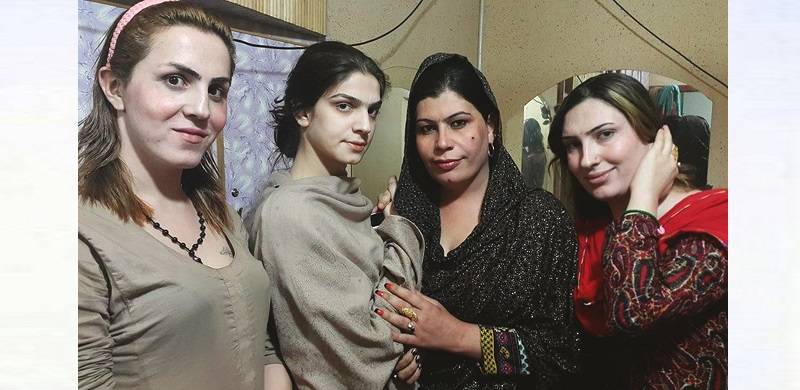
Council of Islamic Ideology declared 'self-perceived identity' as un-Islamic, as it reviewed the transgender rights act and the rules governing it, on Thursday.
The statement comes after a two-day huddle on the matter which 'took the sense' of all stakeholders.
According to the council, several provisions and clauses of the rules framed were not compatible with sharia.
Expressing concerns on the increasing social and legal issues for the intersex and transgenders, the body called for their swift resolution.
The CII also examined the amendment bills presented by Senator Mohsin Aziz, Senator Mushtaq Ahmed, and Senator Maulana Abdul Ghafoor Haideri and proposed amendments to them.
On the occasion, the council also passed a resolution in connection with the International Day to Combat Islamophobia and praised the UN decision to celebrate it every year.
It also hoped that integrated and persistent steps taken in this regard would yield a positive outcome.
The participants observed that certain elements in the West and some other countries wanted to create 'an atmosphere of fear and hatred towards Islam and Muslims', thus endangering global peace.
Besides the CII members, the meeting was participated by religious scholars and leaders, representatives of the transgender community, doctors, legal, and social experts, civil society organisations, Nadra and human rights ministry, aimed at reviewing all aspects of the issues pertaining to the community.
For the past few decades, the rights of the transgender are being highlighted at the state level. Yet, the community’s development is progressing at a snail’s pace.
The public needs to be sensitised through the media about issues of the transgender community, which should also be encouraged to initiate businesses, like open restaurants, boutiques and salons.
As part of the state policy, educational institutions also need to be instructed to create awareness and understanding about the transgender community among young children. They must be taught to love them rather than look down upon them.
The statement comes after a two-day huddle on the matter which 'took the sense' of all stakeholders.
According to the council, several provisions and clauses of the rules framed were not compatible with sharia.
Expressing concerns on the increasing social and legal issues for the intersex and transgenders, the body called for their swift resolution.
The CII also examined the amendment bills presented by Senator Mohsin Aziz, Senator Mushtaq Ahmed, and Senator Maulana Abdul Ghafoor Haideri and proposed amendments to them.
On the occasion, the council also passed a resolution in connection with the International Day to Combat Islamophobia and praised the UN decision to celebrate it every year.
It also hoped that integrated and persistent steps taken in this regard would yield a positive outcome.
The participants observed that certain elements in the West and some other countries wanted to create 'an atmosphere of fear and hatred towards Islam and Muslims', thus endangering global peace.
Besides the CII members, the meeting was participated by religious scholars and leaders, representatives of the transgender community, doctors, legal, and social experts, civil society organisations, Nadra and human rights ministry, aimed at reviewing all aspects of the issues pertaining to the community.
For the past few decades, the rights of the transgender are being highlighted at the state level. Yet, the community’s development is progressing at a snail’s pace.
The public needs to be sensitised through the media about issues of the transgender community, which should also be encouraged to initiate businesses, like open restaurants, boutiques and salons.
As part of the state policy, educational institutions also need to be instructed to create awareness and understanding about the transgender community among young children. They must be taught to love them rather than look down upon them.

